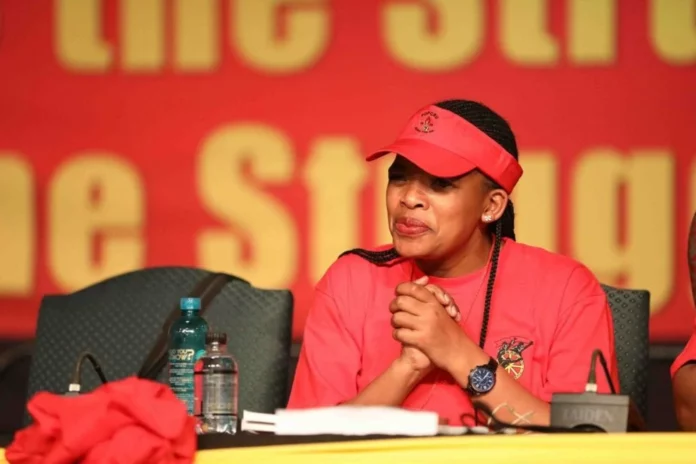Cosatu leaders representing thousands of essential workers on the front line of fighting the spread of the novel coronavirus, which yesterday hit over 1 500 infections and seven deaths, have expressed frustration over being denied permits to be on the ground with their members.
Cosatu president Zingiswa Losi, who leads the country’s biggest trade union federation and is the governing ANC’s ally, told Sunday World that she had been stuck at home since the beginning of the lockdown last week Friday.
Losi said Cosatu officials and several leaders of the federation’s affiliate in the public and private sectors were unable to be with members on the ground to assess whether employers were complying with safety laws such as providing workers with personal protective equipment.
“We were told that we are not essential, but we are leaders of essential workers. We are operating now, calling ministers from home, making interventions telephonically. We are still waiting, we are hoping that they will give us [permits],” she said.
Trade union leaders want to assess the conditions under which workers – especially health workers – are being transported following concerns about government’s flip-flopping on the regulations on minibus taxis, which are seen to be undermining social distancing.
Losi said they had called on employers, including government, to provide workers with transport to ensure their safety and that of the patients.
She said they supported the federation’s biggest affiliate, the National Education, Health and Allied Workers Union, in their court bid to force Health Minister Zweli Mkhize to provide their members with protective gear in line with Occupational Health and Safety Act.
Mkhize said on Friday that he did not see Cosatu’s call for safety equipment as antagonistic, noting that the government was engaging the federation and its affiliates on the matter.
He said the state had reached out to several countries including China, India and Germany to get the protective equipment. “We are doing everything in so far as this matter is concerned,” said Mkhize.
His deputy, Joe Phaahla, told the media that the delay was caused by the fact that most of the equipment was manufactured in China, which was the epicentre of the virus.
Phaahla added that more supplies would arrive over the weekend and early next week.
Transport Minister Fikile Mbalula said the relaxation of taxi regulations was informed by the reality on the ground, adding that the 9am cut-off time for taxis resulted in some citizens buying medication at malls and then wondering around while waiting for public transport to take them home at 4pm.



